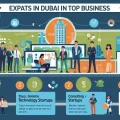Company Registration Process in DMCC
DMCC Free Zone
- Home
- DMCC Free Zone
0507580404
Brochure
Download Silver Oak Documents Clearing Services LLC brochures for all our Packages
Send Us mail
Silver Oak Biz offers full range of Business Formation services for all mainland and free zones in uae. want to get quick response, fill the form below.
Latest Blog

Silver Oak Authorize Business Consultant
Dubai Multi Commodities Centre (DMCC) Free Zone
The Dubai Multi Commodities Centre (DMCC) Free Zone is one of the leading free zones in the United Arab Emirates (UAE) and a prime destination for businesses looking to establish a presence in the Middle East and North Africa (MENA) region. As an authorized business setup consultant, Silver Oak Documents Clearing Services LLC is here to provide an insightful overview of the DMCC Free Zone, including company formation types, licensing options, benefits, the formation process, costs, and expected time frames.
Overview of DMCC Free Zone
Established in 2002, the DMCC Free Zone was created to enhance trade flows and commodity investment, making it a hub for global trade and business. Situated in the heart of Dubai, it offers a favorable environment for companies across many sectors, including commodities, trade, logistics, consultancy, and technology. The DMCC Free Zone offers investors a combination of liberal business regulations, UAE Corporate Tax exemptions, world-class infrastructure, and seamless access to international markets.
Types of Licenses Offered in DMCC Free Zone
Within the DMCC Free Zone, several types of business entities can be registered, catering to diverse business models:
- Free Zone Limited Liability Company (FZ-LLC): This is the most common form of registration. An FZ-LLC allows 100% foreign ownership with a minimum of one and a maximum of 50 shareholders.
- Free Zone Company (FZC): This setup allows for multiple shareholders (a minimum of 2 and a maximum of 50), making it suitable for partnerships or joint ventures.
- Branch of a Foreign Company: A foreign company can set up a branch in DMCC, allowing it to operate in the UAE while keeping its original entity intact.
- Representative Office: This type allows a foreign company to have a presence in Dubai without engaging in direct income generation from the UAE market. A representative office rent in uae can conduct market research, promote the parent company business, and facilitate sales.
Company Formation in DMCC
The DMCC offers many types of company formations in DMCC business licenses, each tailored to different industries and activities:
- Trading License: This license enables businesses involved in buying and selling goods to import, export, and engage in trade.
- Service License: For consulting and service-oriented businesses, including IT, marketing, and finance.
- Industrial License: Suitable for manufacturing and industrial activities, allowing businesses to process, assemble, and manufacture goods.
- E-Commerce License: This license is designed for businesses trading online, providing flexibility and opportunities in the digital space.
- Freelance License: Aimed at individual professionals looking to provide freelance services without establishing a whole business entity
Benefits of Setting Up in DMCC Free Zone
Establishing a company in the DMCC Free Zone offers many advantages:
- 100% Foreign Ownership: Foreign investors can maintain full ownership without needing a local partner.
- Tax Incentives: DMCC offers a 0% corporate tax rate for 50 years and no personal income tax, making it an attractive destination for global investors.
- Modern Infrastructure: The free zone features state-of-the-art facilities, including customizable office spaces and warehouses, in a thriving business environment.
- Ease of Doing Business: The DMCC has streamlined its licensing processes, enabling speedy and efficient business registration.
- Access to International Markets: Located strategically in Dubai, businesses can leverage the city’s logistics networks to easily access global markets.
- Networking Opportunities: DMCC hosts various events and networking initiatives that connect businesses, fostering collaboration and growth.
Detailed Breakdown of the Cost of Company Formation in the DMCC Free Zone
Setting up a business in the DMCC Free Zone entails several costs that can vary depending on the specific type of business, selected licenses, office requirements, and additional services required. Below is an estimated cost breakdown that outlines the many components of the company formation process in the DMCC Free Zone.
Licensing Fees
Cost Estimate: AED 10,000 to AED 15,000
Trade License: This fee is charged by the DMCC for issuing a business license, allowing you to operate legally within the free zone. The cost varies based on the type of business activity you choose.
Application Fee: This may include preliminary approval fees and trade name registration fees, typically amounting to AED 1,000 to AED 3,000.
Office Space Costs
Cost Estimate: AED 5,000 to AED 15,000 annually
Physical Office Space: Depending on the type of office (flexi-desk, private office, or virtual office), costs can vary. For instance:
Flexi-desk: Typically AED 5,000 to AED 8,000 per year for a shared workspace.
Private Office: The cost can range from AED 12,000 to AED 15,000 per year for dedicated office space.
Office Registration Fee: Additional fees for setting up the office, such as utility connections and administrative setup, may add another AED 1,000 to AED 2,000.
Registration Fees
Cost Estimate: AED 2,000 to AED 5,000
Incorporation Fee: Costs associated with registering your company, which typically range from AED 2,000 to AED 3,000, depending on the complexity of your setup.
Memorandum of Association (MOA) / Articles of Association Fee: Drafting and registering the MOA can cost between AED 1,000 to AED 2,000.
Additional Costs
Visa Fees: Depending on the number of employees or shareholders, UAE residency visa fees can add up. Each visa can cost between 3,000 to 5,000 AED.
Health Insurance: Mandatory health insurance for employees is typically based on the provider, but generally costs between AED 1,500 and AED 3,000 per employee per year.
Bank Account Setup Fees: While many banks do not charge setup fees, some may require an initial deposit, which could range from AED 5,000 to AED 10,000. Hire Silver Oak to open a corporate bank account in the UAE.
Local Sponsor/Agent Fees (if needed): In certain cases, if you are setting up a branch of a foreign company, local sponsorship may be required, costing approximately AED 10,000 to AED 20,000 annually.
For entrepreneurs in the publishing or service sector, SPC Free Zone in Sharjah provides a supportive environment with over 1,500 business activities. If you’re targeting international markets, consider offshore company formation for its privacy and tax advantages. We also offer PRO services across the UAE to handle all your visa, license, and legal documentation needs. As a bonus, new clients get free accounting services for the first year, helping you save money while focusing on business growth.
The process of setting up a company in the DMCC Free Zone involves several key steps:
The Dubai Multi Commodities Centre (DMCC) is one of the leading free zones in the UAE, renowned for its business-friendly environment, state-of-the-art infrastructure, and strategic location. Establishing a company in DMCC offers numerous advantages, including 100% foreign ownership, zero taxes on personal income, and the ability to repatriate profits. If you’re considering setting up a business in DMCC, here’s an overview of the comprehensive registration process.
Step-by-Step Company Registration Process in DMCC
Step 1: Determine Your Business Activity
Before initiating the registration process, you must decide on the business activity or activities you plan to engage in. DMCC offers a range of business activities across multiple sectors, including trading, manufacturing, and professional services. Ensure that your chosen activity aligns with the DMCC’s approved activities list.
Step 2: Choose a Company Name
Select a name for your company that complies with DMCC’s naming regulations. The name must be unique, not similar to any existing companies registered in the UAE, and should not include offensive language. It’s advisable to have several options prepared, as the name will need to be approved by DMCC.
Step 3: Apply for Initial Approval
Once you have decided on your business activity and company name, you can apply for initial approval from DMCC, which can be done online through the DMCC portal. You will need to provide the following documents:
- A passport copy of the proposed shareholders
- Residency visa (if applicable)
- Proposed company name
- Description of business activity
DMCC typically processes initial approval requests swiftly, within 1-3 business days.
Step 4: Prepare Required Documentation
After obtaining initial approval, you must prepare the required documentation for the registration process. The documentation typically includes:
- Completed DMCC application form
- Memorandum and Articles of Association (MAA)
- Shareholders’ passport copies
- Proof of address for the shareholders
- NOC from the current employer (if applicable)
- Additional documents, depending on the business activity
Step 5: Submit Documents and Pay Fees
With all necessary documentation ready, you can submit your application and pay the required registration fees. DMCC’s fee structure typically includes licensing fees and other administrative charges, which vary depending on the type of license being applied for.
Step 6: Lease Office Space
DMCC mandates that all licensed businesses have a physical presence within the free zone. You must lease office space that meets the minimum requirements set by DMCC. The options range from flexible desks to larger offices, depending on your company’s size and needs.
Step 7: Final Approval and License Issuance
After submitting your documents and securing an office lease, DMCC will review your application. If everything meets their requirements, you will receive your company license. The entire process can take anywhere from 3 to 10 business days, depending on the complexity of your application.
Step 8: Open a Corporate Bank Account
With your DMCC license, you can open a corporate bank account in the United Arab Emirates (UAE). It’s advisable to research various banks to find one that suits your business needs and offers competitive services.
Step 9: Obtain Additional Approvals (if needed)
Depending on your business activity, if applicable, you may need additional permits or approvals from relevant authorities outside of DMCC, such as health and safety permits.
Other Free Zone avaiable in Dubai for Company Formation
Dubai offers diverse free zones for company formation, catering to various industries and business needs. Notable options include the Dubai Multi Commodities Centre (DMCC), renowned for its robust infrastructure and networking opportunities in the commodities sector, and the Dubai Silicon Oasis, which focuses on tech and innovation-driven enterprises. The Dubai International Financial Centre (DIFC) provides a world-class financial services hub. At the same time, the Jebel Ali Free Zone (JAFZA) is ideal for import and export businesses due to its strategic location and logistics advantages. Other noteworthy free zones include the Dubai Media City, Dubai Healthcare City, and Dubai Design District, Meydan free zone each tailored to meet the specific requirements of businesses in media, healthcare, and design sectors, respectively. This diverse landscape allows entrepreneurs and companies to choose the environment that best aligns with their strategic goals and operational needs.


Facilities and Presence Requirements in DMCC
Setting up a business in the Dubai Multi Commodities Centre (DMCC) comes with specific facilities and presence requirements that ensure companies have the necessary infrastructure to operate effectively while complying with local regulations. Below are the key aspects related to facilities and presence requirements in DMCC:
Physical Office Requirement
One of the fundamental requirements for obtaining a business license in DMCC is having a physical office space within the free zone. DMCC does not allow companies to operate from a residential address or a virtual office without a designated business location. Businesses must choose from various office solutions offered within the free zone.
Space Size Requirements
The size of your office will depend on the nature of your business and the number of visas you require. For instance, flexi-desks cater to individuals and small teams, while larger companies may need substantial office space. DMCC also has guidelines regarding the minimum space requirements for specific business activities.
Business Address Registration
Once you have secured your office space, you must register that address with DMCC as part of your application for the business license. The address will serve as the registered location of your company and will be used for official correspondence.
Compliance with DMCC Regulations
All office facilities must comply with DMCC’s regulations and standards. This includes maintaining proper health and safety measures within the workspace and ensuring that your business operations align with the approved activities listed in your business license.
Presence of Management and Staff
If you plan to apply for more than one visa, your company must have a presence within DMCC, including appointed managers, directors, and at least one employee. You’ll need to demonstrate how the presence of your management team facilitates operations and adherence to DMCC regulations.
Visa Requirements
The number of visas you can apply for is based on the size of your office space and the business activities you plan to undertake. DMCC offers different visa packages corresponding to specific office configurations (like flexi-desks or dedicated offices).
Additional Facilities
Setting up a business in the Dubai Multi Commodities Centre (DMCC) comes with specific facilities and presence requirements that ensure companies have the necessary infrastructure to operate effectively while complying with local regulations. Below are the key aspects related to facilities and presence requirements in DMCC:
- Meeting Rooms: Professional meeting rooms can be available for client meetings or company events.
- Conference Facilities: DMCC offers access to larger venues for seminars, workshops, and networking events.
- IT Support: Many office spaces come pre-equipped with high-speed internet and IT support for seamless business operations.
Networking and Business Community
One of the benefits of being based in DMCC is access to a vibrant business community. Companies in the free zone can network with other businesses, participate in industry events, and gain insight into market trends, improving their potential for collaboration and growth.
Free Zone Company Liquidation or Cancellation in DMCC
Liquidation or cancellation of a company in the Dubai Multi Commodities Centre (DMCC) is a formal process that must be followed meticulously to ensure compliance with legal and regulatory requirements. Whether you’re winding up your business due to market conditions, a strategic pivot, or other reasons, understanding the steps involved in the liquidation or cancellation process is essential. Here is a comprehensive overview of the procedures and considerations for liquidating or canceling a free zone company in the DMCC.
Reasons for Liquidation or Cancellation
- Business Closure: When a business is no longer viable or has ceased operations.
- Merger or Acquisition: Businesses may dissolve to facilitate a merger or acquisition.
- Change in Strategy: Companies may close operations in a free zone as part of a rebranding or restructuring effort.
- Non-Compliance: Failure to comply with legal and regulatory requirements may compel companies to liquidate.
Steps for Company Liquidation or Cancellation in DMCC
Step 1: Board Resolution
Before initiating the liquidation process, the company’s board of directors must pass a resolution to proceed with the liquidation. This resolution should outline the reasons for liquidation and approve the appointment of a liquidator if necessary.
Step 2: Appointment of a Liquidator
A licensed liquidator must be appointed to oversee the liquidation process. The liquidator will be responsible for settling any outstanding debts, managing the sale of assets, and ensuring compliance with DMCC regulations during the winding-up process.
Step 3: Notify DMCC Authority
Once a liquidator has been appointed, the company must formally notify DMCC, including submitting a request for liquidation along with the board resolution and the liquidator’s details. Alongside the notification, the company must settle any outstanding fees or penalties with DMCC.
Step 4: Clear Outstanding Debts
The appointed liquidator will work to settle any company’s outstanding debts, obligations, or liabilities. This may involve communicating with creditors to negotiate settlements or arrange payment plans.
Step 5: Asset Distribution
After all debts and obligations have been settled, the liquidator will distribute any remaining assets among the shareholders. This distribution must adhere to the company’s Memorandum, Articles of Association, and relevant regulatory provisions.
Step 6: Final Audit and Closure
The liquidator must conduct a final audit to settle all financial matters correctly. Upon completion of the audit, the liquidator will prepare a final report detailing the liquidation process and provide this to the DMCC for review.
Step 7: Liquidation Certificate
Once the above steps are completed, the liquidator will submit all necessary documentation, including the final report, to DMCC for approval. DMCC will issue a liquidation certificate upon acceptance, officially marking the company’s closure.
Step 8: Deregistration of the Company
After obtaining the liquidation certificate, the company must apply for deregistration from the DMCC registry. This involves submitting a cancellation request and supporting documentation, including the liquidation certificate and evidence of settlement of all dues.
Important Considerations
- Timelines: The time required for the entire liquidation process can vary depending on the complexity of the company’s affairs. Ensure you account for possible delays in closing debts or disputes with creditors.
- Legal Compliance: Engage a legal advisor or a specialized firm experienced in business liquidation in the UAE to ensure all regulatory requirements are met.
- Documentation: Maintain thorough documentation throughout the liquidation process to facilitate future inquiries or legal obligations.
- Impact on Shareholders: It’s essential to communicate the implications of the liquidation process to all shareholders to ensure transparency and compliance with company bylaws.
FREQUENTLY ASKED QUESTIONS
Do you have any question? Find answer here
WHAT IS A DMCC LICENSE?
A Dubai Multi Commodities Centre (DMCC) business license is crucial for companies operating within the DMCC free zone authority. It offers opportunities for international trade and facilitates operations within one of the fastest-growing free zones.
Is A Dmcc Company A Limited Liability Company (LLC)?
An LLC is separate from shareholders, with liabilities limited to unpaid share capital. Under DMCC company rules, all share capital must be paid up. A DMCC company must have at least one shareholder and director, both non-residents of UAE, and a minimum paid-up share capital of AED 50,000.
How Do I Start A Dmcc Business & Get A Dmcc License?
Starting a DMCC business involves consultation with Creation Business Consultants, selecting activities, legal types, and office facilities, and submitting necessary documents for a smooth and hassle-free experience.
What Are The Types Of Licenses In Dmcc?
DMCC offers standard license types like trading, industrial, and service, with suitable licenses based on business nature, activities, and goals. Our business structuring experts provide discovery-free consultations to guide companies through the correct license type and options.
What Is The Cost Of Renewing A Dmcc Free Zone License Company?
The cost of renewing a DMCC free zone license depends on the company's structure, license type, and business activities.
Is Dmcc Tax Free?
DMCC offers significant financial benefits, including tax exemption for establishments and individuals, provided they comply with regulatory requirements. This exemption is not just for a few years but guaranteed for 50 years, providing long-term financial security and stability for your business.
IS DMCC OFFSHORE?
No. DMCC is a free zone located in Dubai, UAE.
Is Dmcc Vat Exempt?
DMCC entities must register for VAT if their taxable supplies and imports exceed AED 375,000 annually. However, registration is optional for those exceeding AED 187,500. This flexibility in VAT registration allows you to effectively manage your business finances according to your business activities and goals.
What Are Dmcc Member Benefits?
DMCC members enjoy many benefits, including 0% income tax, 100% business ownership, capital repatriation, strategic location, flexible solutions, and an efficient online portal for all services.
What Is The Cost Of A Resident Visa In The Dmcc Free Zone?
The cost of a UAE residence visa under a DMCC free zone company varies based on the application type: an investor/partner visa or an employment visa.
What Are The Liquidation Requirements For A Dmcc Free Zone Company Closure?
Liquating a DMCC company involves several steps, including canceling all visas issued under the company, obtaining resolutions and clearance certificates, and submitting liquidation reports.







